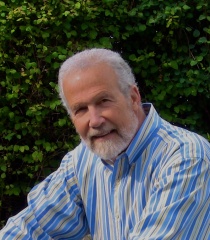No doubt you heard that shoppers at a Kroger supermarket in Charlottesville, VA got a bit of a scare yesterday evening when a 22-year-old man walked into the store toting a loaded AR-15 rifle. Sounds frightening, and it was for some customers who ran out of the store upon seeing a large, semi-automatic gun similar to the one used by Newtown, Conn. shooter Adam Lanza in their grocery aisles. [1]
In Virginia his behavior is considered legal and sane, and police released him. But perhaps in case the police or another gun-owner mistakenly killed him, the armed shopper carried in his pocket a note explaining that he was just exercising his 2nd Amendment right to walk around with a menacing weapon.
This is a brilliant demonstration of the politely hushed reality that the demand for guns correlates with insensitivity to the feelings and rights of other people. To be blunt: displaying a military-style assault rifle associated with rampage massacres is a form of psychological violence against unarmed people. The reality is that the man terrorized some fellow citizens who were intelligent enough to flee the store. Why say “terrorized”? Because his arsenal gave him grossly disproportionate power over others in an obscenely inappropriate situation. The vicious nature of the weapon allows it to kill indiscriminately in a split-second—much faster than any potential victim could evaluate the gunman’s intentions.
At a minimum, the armed shopper was brutally insensitive to other people. More likely, I’d guess, he wanted to force a confrontation with a world he feels is threatening his sense of potency. However he intended it, his behavior can be read as a threat display: a violent signal designed to intimidate “enemies.”
Because the behavior deliberately challenged social custom while careful not to break the letter of the law, it is passiveaggression. And passive aggression can be as lethal as an overt assault because it disables our reality-testing capabilities through its compulsive dishonesty. The grocery gunman pretends he is just “sticking up for himself,” and the public pretends that it isn’t reciprocally angry about being scared to death. Such a fog of motives invites accidents.
The grocery gunman’s mentality suggests a level of anxiety and paranoia that could justify keeping lethal weapons away from him. After all, even the NRA wants guns kept away from mentally unstable individuals. And with such a violation of community rights to peaceful food shopping (with children), how can we trust the gunman’s motives?
You notice that media conventions unthinkingly echo the gun carrier’s perspective by reporting he was “exercising his right,” not terrorizing people, and referring to him as “a 22-year-old man” not a “gunman.”
Similarly, neither media nor the Senate hearings call attention to the intoxicating nature of the nervous system arousal that has been triggered by the shock of massacred children in Newtown CT and by disputed government efforts to tame the threat of promiscuous military weapons in unpredictable hands. But look at the number of copycat and otherwise routine gun crimes in the news since the Newtown massacre. In the newspaper before me, I read “Suspect on loose after deadly Ariz. shooting” (AP). And beside it, yet another “Gunman kills bus driver, seizes boy” as hostage—in this case a retired truck driver who was “a menacing figure who once beat a dog to death with a lead pipe” and threatened kids “for setting foot on his property.”
For all you know, he’s standing next to you at the cucumber display.
The public reality is politely irrational—crazy—on this subject. The refusal to look at personal motives goes deeper than mere hypocrisy. Unless you’re considering fighting a guerrilla war against the Federal government (“to defend your rights”) or slaughtering a rival drug gang, there is no rational need to own assault weapons with large magazines. If your trigger finger demands that satisfaction, gun clubs could oversee their use.
The “debate” over gun control is actually a singing contest, with each side trying to woo public applause with its carefully crafted lyrics and repeated riffs. The gun control advocates have suffering and death supporting their position, as in the testimony of grieving parents from Newtown and nearly assassinated Rep. Gabrielle Gifford. Data also show that large-capacity assault weapons produce more rampage carnage. But the NRA and its politicians aren’t listening. They recite. They riff.
If you think about it, this farce is a familiar form of negotiation when polarization has thwarted compromise. The real work is “outsourced” to distant polls of the remote electorate. By the time the debate seeps into public awareness it is bound to be diluted, the compelling numbers outshouted by impassioned demands. The crucial insight is that for the NRA and “the 22-year-old man,” the behavior is also passive aggression. It riffs to play along with polite negotiations, but the real argument is the threat of orchestrated retaliation by NRA supporters and election ad “war chests.”
If you’re being terrorized by a gunman in the toilet paper aisle of your supermarket, it’s not wise to confuse a “debate” with the passive fog of war.
* * *
1. “It’s time for more fun with guns from the great state of Virginia! Shoppers at a Kroger supermarket in Charlottesville got a bit of a scare yesterday evening when a 22-year-old man walked into the store toting a loaded AR-15 rifle. Sounds frightening, and it was for some customers who ran out of the store upon seeing a large, semi-automatic gun similar to the one used by Newtown, Conn. shooter Adam Lanza in their grocery aisles. Take it away, Daily Progress:
Charlottesville police Lt. Ronnie Roberts said the man did not break any laws. Since he legally owned the rifle and it was not concealed, he was within his rights, Roberts said. Virginia requires a permit to carry a concealed weapon, but has no such restriction on guns in plain view. According to police, the man originally entered the store unarmed, then went back to his car and retrieved his rifle. He then walked back into the store briefly before leaving again.
So, basically, it’s totally legal to carry whatever size gun you want anywhere in Virginia, so long as you have a permit. At least the supermarket managers were able to take some meaningful action. The gunman received a lifetime ban from the Kroger, according to The Daily Progress.”
James Holmes, who is accused of killing 12 people and wounding 58 at a Colorado movie theater on July 20, also allegedly used an AR-15. (kf)



